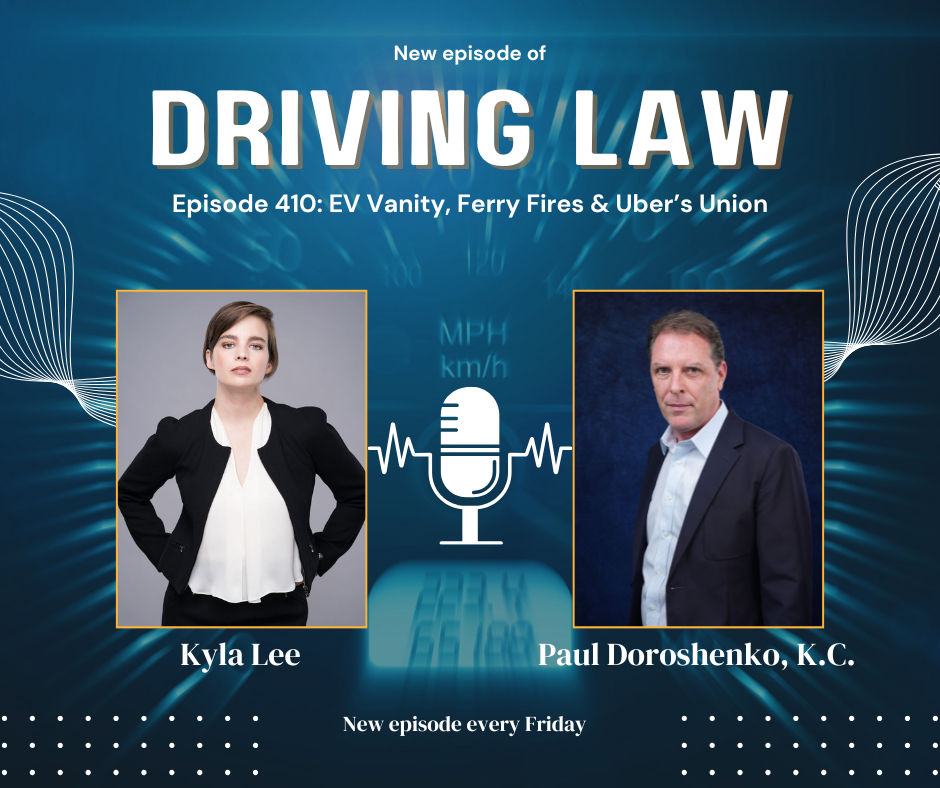Episode 411: Speed, Safety & the Law: Vancouver’s Limits and the Hinkson Report
This week on Driving Law, Kyla Lee and Paul Doroshenko cover Vancouver’s push for 30 km/h zones, the Hinkson Report’s public event safety recommendations, and a wild high-speed chase in Saskatoon involving a taxi, a grocery store robbery, and a stolen cube van.
They begin with Vancouver’s proposed 30 km/h speed limit on side streets, part of the Vision Zero push. Paul questions its practicality and lack of enforcement, while Kyla explains why speed isn’t the only factor in pedestrian safety—driver behavior is key.
Next, they examine the Hinkson Report, released in response to the Lapu-Lapu Day tragedy. The report offers immediate recommendations to protect public events from vehicle attacks. Kyla and Paul weigh in on the logistics, funding, and feasibility of the proposals.
Finally, the Ridiculous Driver of the Week is a Saskatoon man who stole a taxi, robbed a store, and fled in a cube van. The police chase ended safely, but the case is a cautionary tale about impaired decisions and their legal fallout.
Check out the ‘Lawyer Told Me Not To Talk To You’ T-shirts and hoodies at Lawyertoldme.com and ‘Sit Still Jackson’ at sitstilljackson.com.
Episode 411: Speed, Safety & the Law: Vancouver’s Limits and the Hinkson Report Read More »







